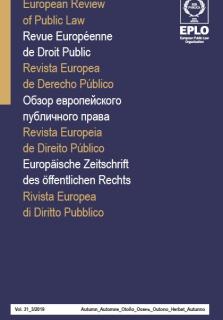
Administrative Law / Droit administratif
2018
Belgium / Belgique
Professeur à l’Université catholique de Louvain, Avocat au barreau de Bruxelles
Assistante à l’Université catholique de Louvain, Avocate au barreau du Brabant wallon
Assistante à l’Université catholique de Louvain
Belgian administrative law is undergoing, in 2018, various interesting developments. The Flemish Region is legislating on the organization of local government, but also on the relationship between the citizen and the administration. The Walloon Region establishes a mechanism of popular consultation and legislates in the fields of expropriation, of heritage, of supervision of local authorities and transparency within the subsidiaries of intercommunal entities. The Brussels Region reorganizes, for its part, the specific ways of communal management and of intercommunal cooperation, and acquires a new administrative and pecuniary status for the agents of the Brussels regional services. For its part, justice gives various lessons. It is the case of the Constitutional Court on extracontractual civil liability of the administration and licensing of a public sector contract agent. It is the case of the Court of Cassation on the use of languages in the so-called “peripheral” communes, such as with regard to the publication of communal regulations by means of posters and of real rights able to encumber a public good. It is also the case of the Council of State with regard to questions on “disputes over reparatory compensation” and of the Brussels Court of Appeal, which, by an unprecedented decision, condemns the Belgian State for unilateral commitment of the administration. There is, finally, the adoption of a federal law which authorizes, from now on, every legal person governed by public law to participate in a mediation or a process of “collaborative law”.
Le droit administratif belge connaît, en 2018, diverses évolutions intéressantes. La Région flamande légifère en matière d’organisation de l’administration locale, mais aussi en matière de relations entre le citoyen et l’administration. La Région wallonne institue un mécanisme de consultation populaire et légifère dans les domaines de l’expropriation, du patrimoine, de la tutelle sur les pouvoirs locaux et de la transparence au sein des filiales d’intercommunales. La Région bruxelloise réorganise, pour sa part, les modes spécifiques de gestion communale et de coopération intercommunale, et se dote d’un nouveau statut administratif et pécuniaire pour les agents des services régionaux bruxellois. De son côté, la justice délivre divers enseignements. C’est le cas de la Cour constitutionnelle en matières de responsabilité civile extracontractuelle du fait d’administrer et de licenciement d’un agent contractuel du secteur public. C’est le cas de la Cour de cassation en matière d’emploi des langues dans les communes dites “périphériques”, comme en matières de publication des règlements communaux par voie d’affichage et de droits réels pouvant grever un bien du domaine public. C’est encore le cas du Conseil d’Etat s’agissant de questions tou-chant au “contentieux de l’indemnité réparatrice” et de la Cour d’appel de Bruxelles qui, par une décision inédite, condamne l’Etat belge au titre de l’engagement unilatéral de l’administration. L’on relève, enfin, l’adoption d’une loi fédérale autorisant, désormais, toute personne morale de droit public à participer à une médiation ou à un processus de “droit collaboratif”.
* La présente contribution a donné lieu à une publication dans l’Annuaire européen d’Administration publique (A.E.A.P.), 2019, pp. 211-238. Elle est publiée dans la présente Revue avec l’aimable autorisation du Professeur Delphine Costa (Université d’Aix-Marseille, France).





















